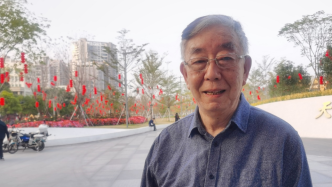
The TV series "Journey to the West", which began to be broadcast in 1982, is the childhood memory of several generations. It won the special prize and the excellent art award for long series at the 8th China TV Drama "Flying Apsaras Award", and was also selected as the first batch of dramas to be broadcast on the "Revisiting Classics" channel. This drama not only satisfies everyone's imagination of the world of myths and monsters, but also many songs in the drama, such as "Where is the Road", "Cloud Palace Swift Sound", and "Daughter's Love", have also been widely circulated and become classics among classics.
The composer of this TV series, Mr. Xu Jingqing, was originally a professional composer at the China Agricultural Film and Television Center. His early folk music works such as "Red Flowers Blooming Everywhere in Dazhai" and "Wusuli, My Hometown" are his representative works. After composing music for the 1982 version of "Journey to the West", Mr. Xu also took on the music creation of film and television works such as "Women Are Not the Moon" and "Song Qingling and Her Sisters". In Mr. Xu's view, the recognition of his creative career does not come entirely from awards. The spontaneous spread among the people can better prove the audience's recognition and love for his works.
Recently, the China Television Art Committee specially invited Mr. Xu Jingqing to be interviewed and review his experience of composing music for "Journey to the West" more than 40 years ago.
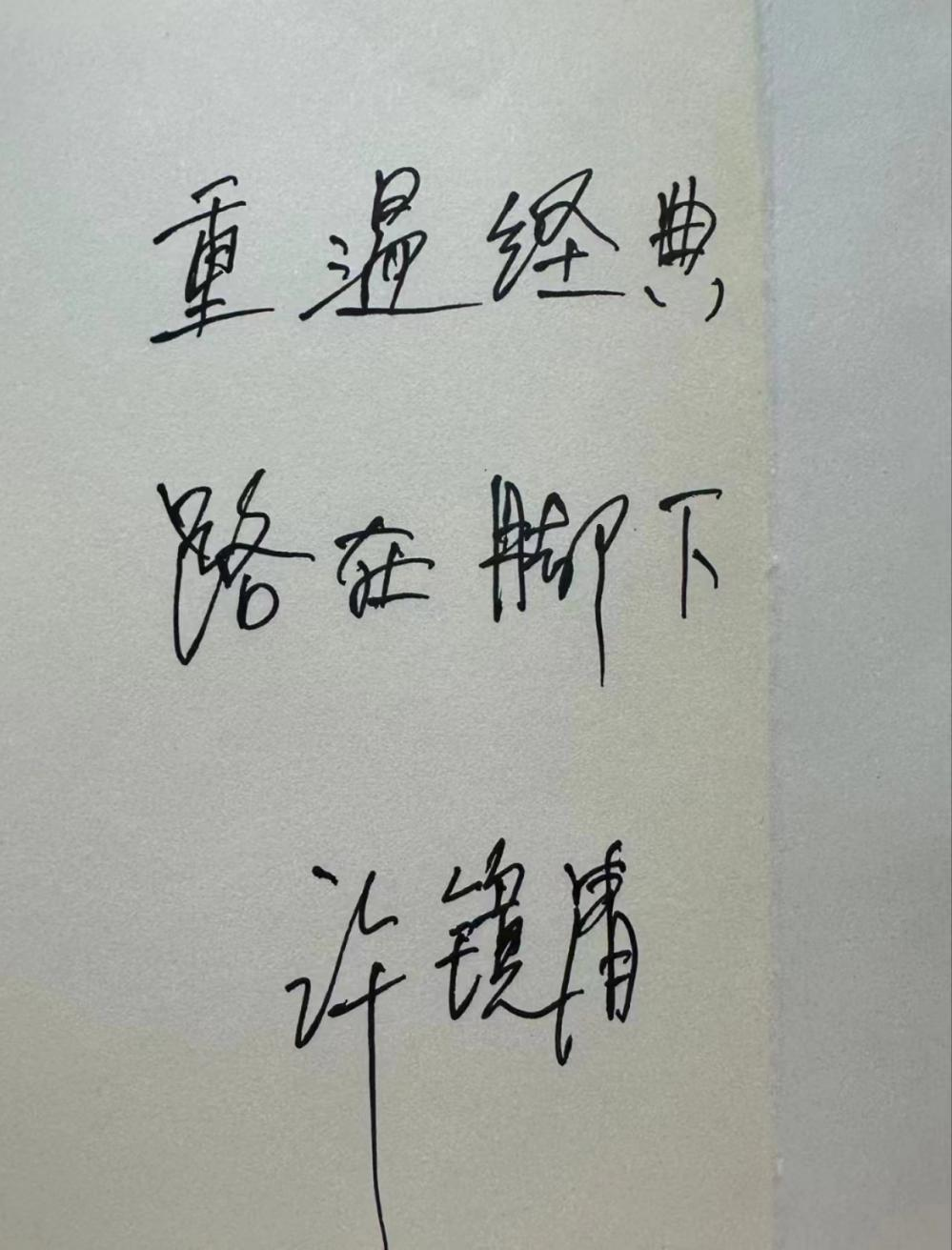
Teacher Xu Jingqing wrote the inscription for "Revisiting the Classics"
【dialogue】
Q : How did you get the opportunity to compose music for Journey to the West?
A : Before I was invited to compose music for Journey to the West, seven well-known composers were invited one after another, and I was the eighth. I composed music for Journey to the West purely by chance.
At that time, I was just an ordinary composer in Beijing, and not many people knew me. After graduating from the composition major of Harbin Academy of Arts, I was assigned to Beijing and joined Nongying (China Agricultural Film and Television Center), mainly writing music for agricultural science and education films and documentaries. At that time, I thought that no matter what I wrote, as long as I could create works that ordinary people loved to listen to and sing, I would be satisfied. I have always been unconventional in my creation. I want to try all kinds of music styles and all kinds of instruments, and I don’t easily let go of any creative opportunities. I am very serious and hardworking in my profession.
Who recommended me to join the crew of Journey to the West? It was a composer named Lu Shilin. He told Wang Wenhua to find Xu Jingqing from Nongying. He was a man who could bring a stone to life. Wang Wenhua was the music editor of CCTV. When he heard that there was a composer who could bring a stone to life, he was very curious and called Nongying to find me. That day, I was sitting in the communication room reading the newspaper. The old man in the communication room just walked out of the room, and the phone on the table rang. I picked up the phone casually, but I didn't expect that the call was for me. The caller said that he was Wang Wenhua, the music editor of CCTV. A friend recommended that my music was very good, and he wanted to invite me to the film orchestra the next day to talk about music creation.
When I heard that they wanted to talk about composition, I readily agreed. The next day I rode my bike to the film orchestra as scheduled. The place is very close to our unit, and it takes less than 10 minutes to get there by bike. I looked over and saw Lu Shilin sitting in the room. We knew each other, and there was another person, Wang Wenhua. After a few pleasantries, we sat down. Wang Wenhua said that CCTV was going to shoot a large-scale TV series with dozens of episodes. When I heard about dozens of episodes, I was shocked. At that time, five or six episodes were considered a feature film, and at most ten episodes. I found it unimaginable that Lu Shilin and I would have to create these dozens of episodes of mythological stories one by one.
After that conversation, there was no news for a long time. Just when I was about to forget about it, I received a call from Wang Wenhua asking me to meet him at the TV station. I went as scheduled. They gave me a lyric "Born without a name, without a surname" and asked me to write a song. I finished it quickly and found Cheng Lin, who sang "Little Conch Trumpet" at the time, to sing the song and record a demo. Wang Wenhua listened to the demo and was very satisfied. This was my first time composing music for "Journey to the West".
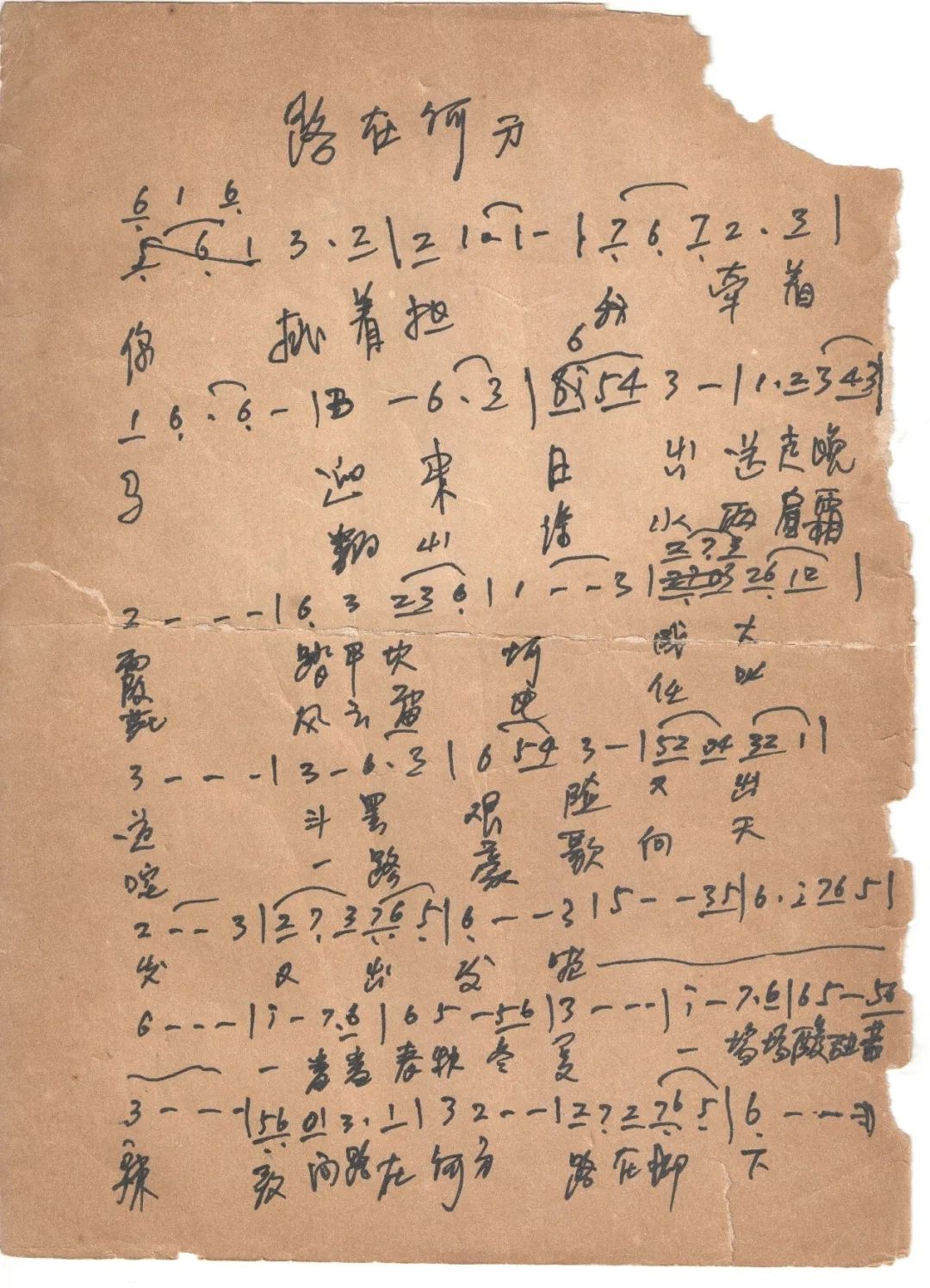
Manuscript of "Where is the Road"
Q : What is the story behind the song “Where is the Way?”
A : At that time, there was a song written by Wang Liping in front of the pilot film, which was used in the opening (Note: The work mentioned here should be "A Hundred Twists and Turns Showing Sincerity", which was used in the 1984 pilot, written and composed by Wang Liping, and sung by Wu Yanze; in the 1982 pilot, there was another opening song "Clouds and Seas", sung by Geng Qichang). The opening song written by Wang Liping was sung by Wu Yanze, and the ending song "Where is the Road" written by me would sound too masculine if it was sung by a male voice. So I invited mezzo-soprano Zhang Baomo to sing it. Her voice is soft but strong, and has an inner strength. After the song was recorded, Director Yang Jie was very satisfied, and the version sung by Zhang Baomo was used in the 1986 pilot.
After the first 11 episodes were aired, Director Yang Jie also received some feedback on the music, with mixed reviews. Some experts thought that "Where is the Road" could not be sung in a popular way, it was too soft and lyrical, and should be replaced. Director Yang liked the song very much. In order to meet the needs of all parties, Director Yang asked me to replace the male voice singing "Where is the Road" and asked me to write a 2-minute and 40-second theme song, pure music, and I had no choice but to do it.
It is not difficult to change the male voice for "Where is the Road". By chance, I met Jiang Dawei in the recording studio recording a song for another TV series. I knew his voice, so I told Yang Jie that we should just let Jiang Dawei sing. Director Yang agreed. When I gave the music score to Jiang Dawei, he said that my daughter can sing this song, but I am not very good at it. When Jiang Dawei first entered the studio to record "Where is the Road", I was not there. After the recording, I heard that the pitch was wrong in two places, and asked for a re-recording. Later, I personally supervised the studio and re-recorded the version of "Where is the Road" sung by Jiang Dawei that everyone hears now.
Q : How was the song “Cloud Palace Swift Sound” created?
A : Director Yang Jie asked me to write a 2-minute 40-second opening music, which is the "Cloud Palace Swift Sound" that everyone hears now. Originally, I named it "Journey to the West Overture". I asked Director Yang, how should I write it? Director Yang said, how to write it is up to you. I asked again, what should I write about? Director Yang said, there is no content, you can do it yourself. Just these two sentences made me feel difficult. There are many things described in "Journey to the West", in the sky, underground, in the water, gods, monsters, and mortals. Music is abstract, but it is very difficult to write without a direction.
A song has lyrics, and the composition relies on them, but writing pure music is different. I can write a long note for 2 minutes and 40 seconds, but it is not the same; I can write seven or eight sentences of music, and it is also music if it is "irrelevant", but it is not right. Director Yang is very smart. In name, she said that it doesn't matter, you can write whatever you want, but in fact, she has a string in her heart, a ruler to measure it. But what is this string? It is difficult for me to guess. So, at that time, I really thought hard for several days. Maybe God helped me. When I had no ideas, two or three migrant workers knocked on their lunch boxes and walked past my window. The repetitive humming suddenly stimulated my brain and gave me the melody at the beginning. Later, I did have a dream. I dreamed that a voice floated from the sky, "Ahhh..." (singing), feeling in the clouds and fog. Some people say that "Cloud Palace Swift Sound" came from the sky, which seems to be right. With these melodies, for me, it is equivalent to having a theme and ideas. In two or three days, I completed the creation of the whole song.
The complete creation of "Cloud Palace Swift Sound" took me a lot of trouble. Yang Jie wanted an exact 2 minutes and 40 seconds, and I did it with a stopwatch. It can be more, not less, but not too much more. When arranging, I started from weak to strong, adding electric guitars, electronic drums, synthesizers, etc., advancing step by step, the power went up, the most powerful melody sounded, and then the female voice floated in, until the climax ended. The music melodies are basically all there, and the listeners can have any imagination. I am music, not novels. If I write prose, I can tell you that a cloud floated in the sky, and a fairy rode on the cloud and sang and danced on it. But what I write is music, it is for you to understand and generate all kinds of imagination.
After the music was recorded, it was handed over to Director Yang, who was very happy. She said that this kind of music was exactly what she wanted. As she was editing the film along with the music, she said something to me. She said, "Old Xu, your music is so good that we can't keep up with the editing. No matter how we edit it, it doesn't match the feeling of your music." I said, "Just paste whatever you want. My music is full of imagination anyway."
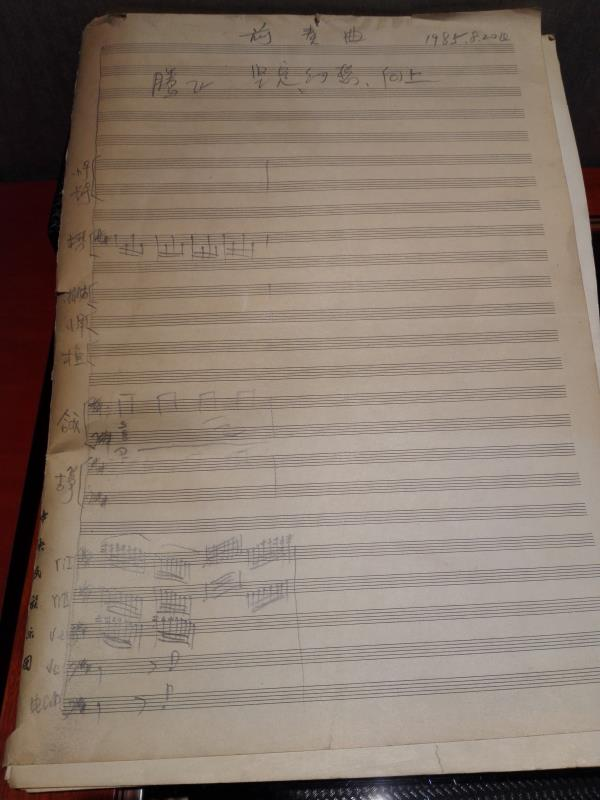
Manuscript of "Message from the Cloud Palace"
Q : "The Kingdom of Daughters" is a story about the love of Tang Monk. How did you choose the lead singer for "The Kingdom of Daughters"? It is said that Director Yang Jie also attaches great importance to this song?
A : At that time, there was a singer from Changchun in the radio and art troupe. Her husband and I had a good relationship. He asked if I could let my wife sing. I said, give it a try. If it works, I won’t say anything. Just let the director listen. If it doesn’t, don’t blame me. He said yes. The singer sang bel canto and won the first prize in a song competition that year. However, “Daughter’s Love” was not suitable for bel canto singing. Moreover, this song did not require any special treatment. The less treatment, the purer and more beautiful it was. After she finished recording, she thought the song was very good, but I felt that she did not express what I wanted to express. Moreover, for such a beautiful song, I alone had no say. The director had to make the final decision. In the end, she was indeed not allowed to sing the song.
Then I thought of Wu Jing. The Oriental Song and Dance Troupe where Wu Jing worked was very close to my home. She had been to my home before. I had heard her sing. She sang with great care and a soft and beautiful voice. Her voice was in line with the tone of "Daughter's Love".
When recording the song "Daughter's Love", Yang Jie paid special attention to it. Because when she was filming "Journey to the West", she had a special liking for the episode "The Journey to the Kingdom of Daughters". She said that this was the only time when Tang Monk was moved on his journey to the West, and she had to film it well. Director Yang has a lot of experience in the beauty of women and how to shoot them beautifully.
Q : Could you please talk about the lyricist of this song, Mr. Yan Su?
A : Mr. Yan Su and I were both born in the Year of the Horse. He is one year older than me. You could say that he is my teacher, partner, and friend.
We have been collaborating for a long time. Years before writing Journey to the West, we often collaborated on short TV series. When a production crew is looking for a composer, I usually look for Yan Su because his lyrics are very good.
Mr. Yan Su was the leader of the Air Force Art Troupe and had great authority. In addition, he was very knowledgeable, intelligent, and very good at dealing with people. He was not an ordinary person. His opera Sister Jiang was so well written, and he had many other good works. Yan Su was very strict with himself, just like his name, he was very serious. But he also loved to tell jokes, and was a very humorous person.
Q : What kind of person is Director Yang Jie?
A : Director Yang Jie is a very qualified director. She is also an old lady with skills, brains, and wisdom. She is also honest and straightforward, which is also good. As a director, her character and career are related. She can win over everyone, and everyone is afraid of her. This is the best director. If I just have a good relationship with you and don’t care about anything else, and go to the crew to mess with you, then it’s over. She has dignity, and everyone is afraid of her and wants to get the director’s love from her, so this kind of director is very successful. Yang Jie is very accurate in judging people and analyzing things. I admire her for this. Her mind is much smarter than ours. And she is always impartial when she looks at things and talks to you about problems.
Our personal relationship was OK, and Yang Jie was honest. In our spare time, we often played poker together, talked and laughed, and took turns to treat each other to meals. At first, we all thought Yang Jie was richer than us, but she wasn't. When I went to Director Yang's house to chat, we basically took turns to pay for meals. But Yang Jie had many more opportunities to pay than I did. Director Yang was not financially special, but she was very nice to her friends, colleagues, and especially the crew of Journey to the West. She would always invite you to dinner at her house, and most of the time we would go out to eat.
Director Yang has always been meticulous in her work. In addition, she is very accurate in capturing the soul of her work, which is very important for a director. The novel "Journey to the West" is quite thick. If you take all the miscellaneous content in it, you can't finish it in 100 episodes. But she was able to capture the essence and the most beautiful and exquisite stories in 25 episodes, which is not easy.
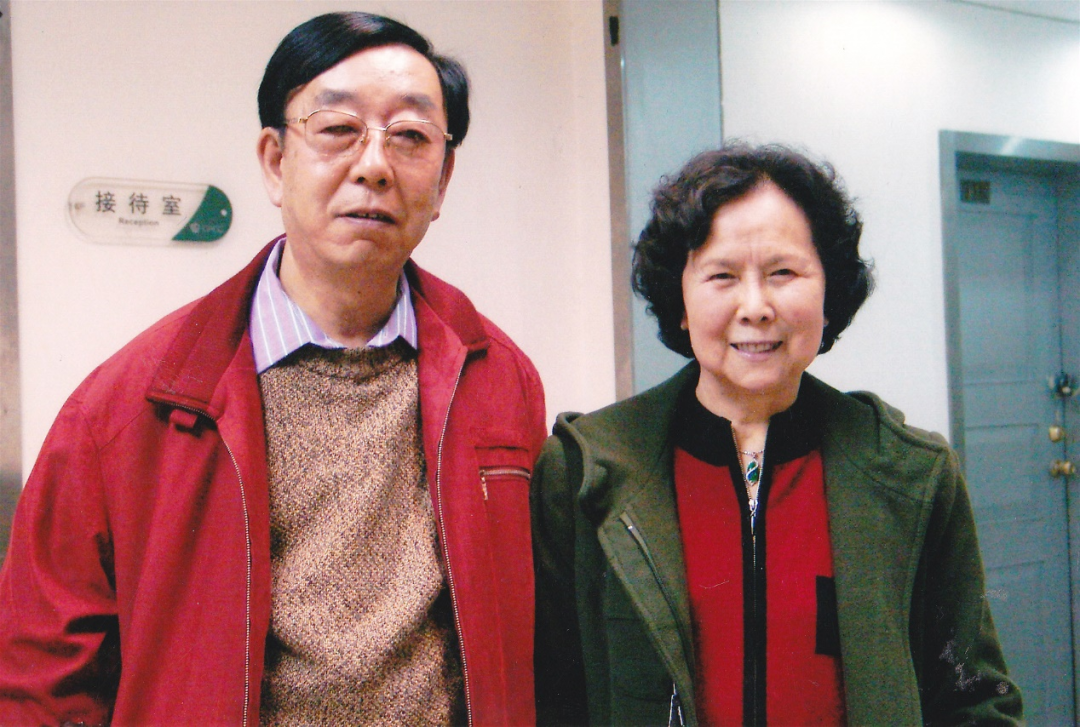
Mr. Xu and Director Yang Jie took a photo together
Q : Are there any moments that make you feel happy as an artist?
A : There is a big park next to my house. When I go there, I can hear the song "Daughter's Love" almost every day. When I first went there, I heard a spontaneous chorus singing "Where is the Road" in the park. I hurried over to see what they were singing because they were singing the song I wrote. It's not that I wrote it, but I just wanted to enjoy the intimacy that ordinary people brought me when they sang this song. When I listen to ordinary people singing, their voices are not as good as those of singers, but their voices are sincere and come from the heart. As the author, I am very pleased and proud.
One evening, my assistant Xiaohu and I walked to the park. We heard "Mandarin ducks roosting together, butterflies flying together..." from a distance. It turned out that a group of old ladies were dancing to the song "Daughter's Love". I said, let's go and take a look. I ran behind the old ladies and followed their gestures and danced. Xiaohu took a video. The more I watched, the happier I was. In this kind of live participation, maybe someone will recognize me, or maybe not, it doesn't matter. If they recognize me, everyone will be happier; if they don't recognize me, I'm also happy. As a music worker, my work has been recognized by everyone, which is more valuable than winning any award.
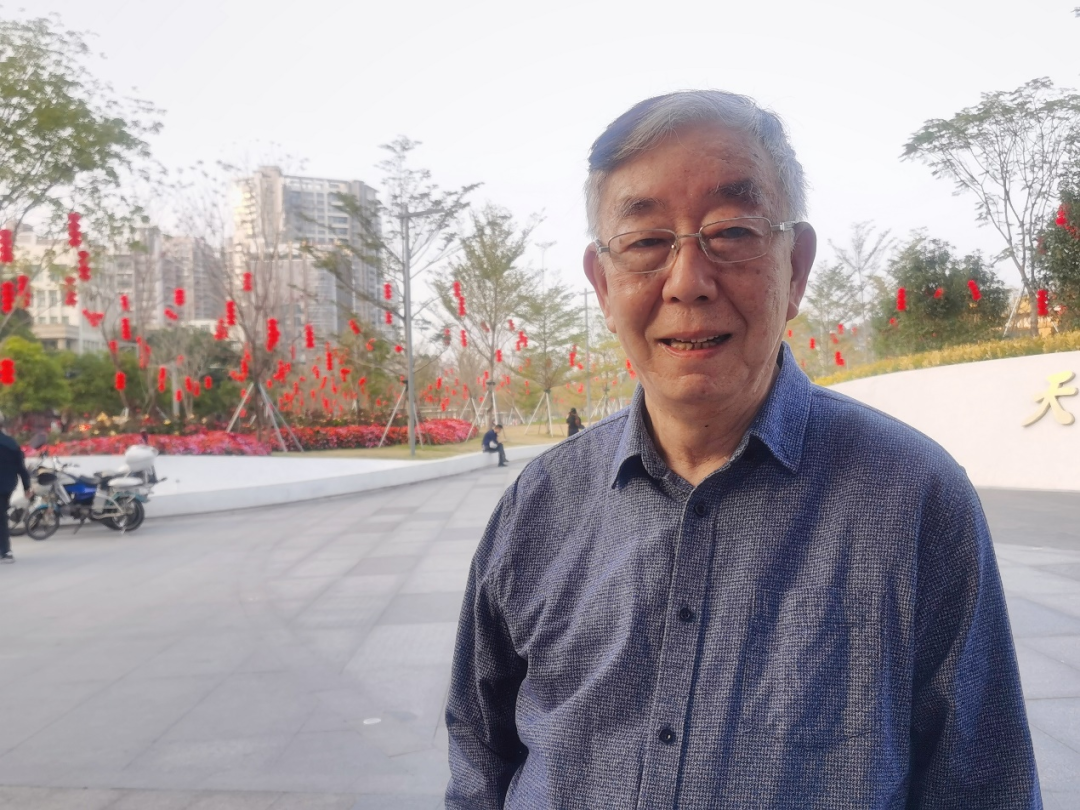
Recent photo of Mr. Xu
Q : What memories does the launch of the “Revisiting the Classics” channel bring back to you?
A : I think the "Revisiting Classics" channel is a good thing to remember for those of us who have participated in creating classics. It has been so many years since we filmed Journey to the West. It has been nearly half a century since the start of filming. But for history, the transition is just a moment. In this moment, those of us who participated in the creation of the 1982 version of Journey to the West contributed all our energy, passion and talent to the creation of Journey to the West.
Now let me recall the past, there are many ups and downs, and the hardships are self-evident. It is not easy to create this classic. It took several people, hundreds of people, and even hundreds of people behind the scenes, who worked very hard. Generally speaking, I don't recall these things. When I really recall them, I also feel that there are both beautiful things and sad things in my heart, both. The beautiful thing is that our art works are recognized and liked by everyone, which is what a musician hopes to get. However, there are also very sad things for us.
Therefore, it is definitely not an easy thing for a good work to come out and be praised by everyone.
【postscript】
Mr. Xu now lives in Guangzhou, so our interview was scheduled in a teahouse near his home that is mostly frequented by locals.
Mr. Xu, who jokes that he can't talk, is actually quite humorous and talkative. The afternoon we met was actually the "morning" of his biological clock as an artistic creator, so the communication lasted until late at night. He talked about everything from his childhood experience of "going to Guandong" to his early morning work to supplement the family income, from his diligent training as a "genius" as an art school student to his initial attempts and research on music creation during the agricultural film period, and later his cooperation with veteran artists from the Beijing Film Studio such as Xie Tian. During the period, he was accompanied by cigarettes that he couldn't give up and coughs that were evoked from time to time, which made him vivid and cute. This article does not have more space to include these contents, and we will try to reflect them in the subsequent research results of "Revisiting the Classics".
We would also like to give special thanks to Mr. Xu's assistant "Little Tiger" Lu Jiaqun. She is a senior fan of "Journey to the West" and the compiler of Mr. Xu's book "I Compose Music for Journey to the West". During the interview, when Mr. Xu was confused because of the long time span, she always reminded him in time and provided us with rich pictures and text materials.
Watching the birth of a classic work through the experience of the composer, I felt the persistence and innovation of Mr. Xu, the ability and open-mindedness of Director Yang Jie, the professionalism and talent of Teacher Yan Su, and of course the hard work of everyone behind the work. The broadcast of the "Revisiting Classics" channel gives us the opportunity to listen to the creative experience of the old artists behind the scenes. We will also properly preserve and strive to present it. I believe that this precious wealth will benefit future generations.
Oral guest: Xu Jingqing (national first-class composer)
Special interview and compilation: Lin Hui (oral history expert at Communication University of China)
Creative team: Hu Yang (Communication University of China team)
Planning: Zhao Cong and Li Xuan


